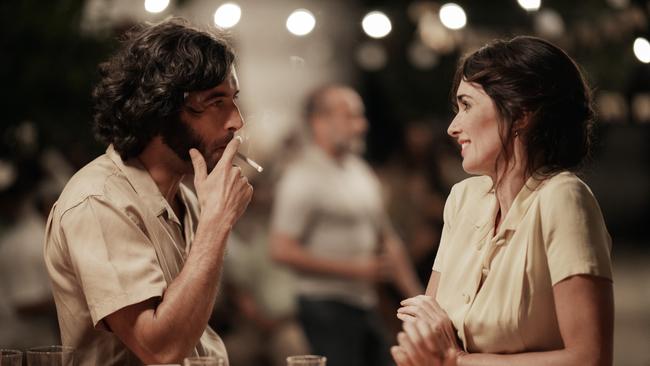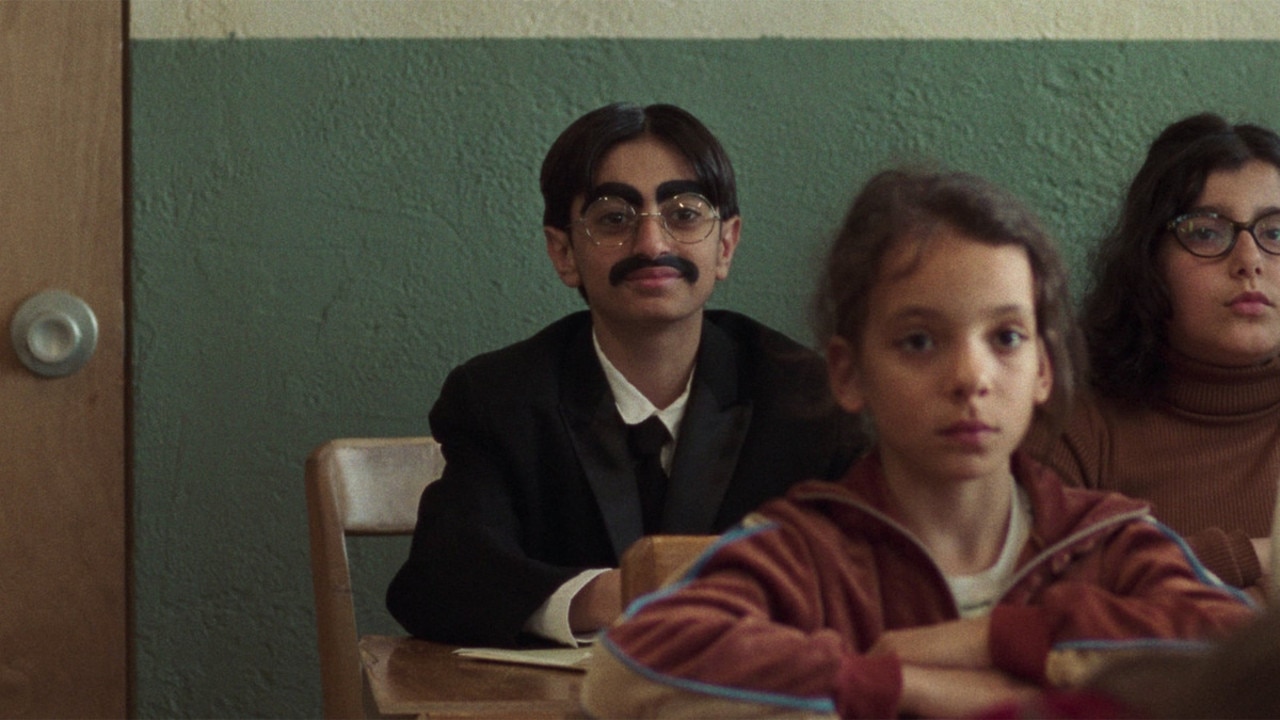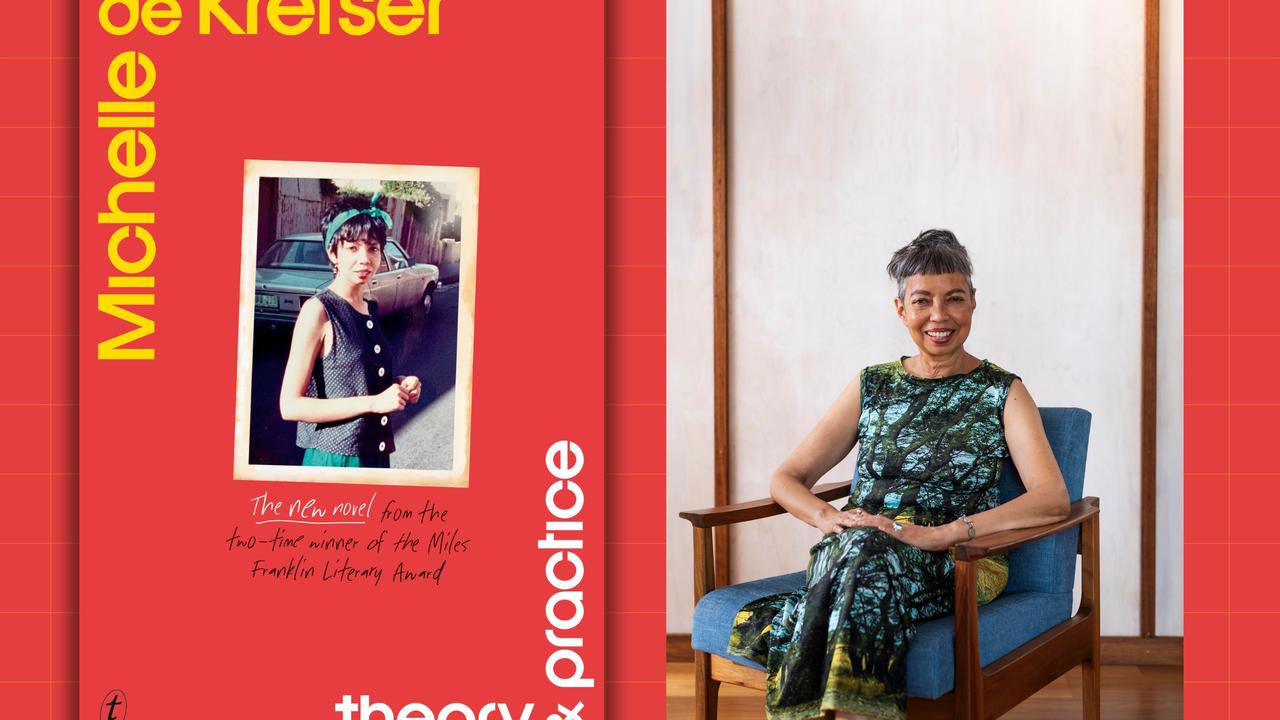The House of Snails a slow-burn thriller
If you liked The Shining or Mary Harron’s adaptation of American Psycho then psychological thriller The House of Snails is for you.

The House of Snails (R18+)
In cinemas
★★★½
The quirky horror-thriller The House of Snails is one of a group of movies from the 2022 Moro Spanish Film Festival that have a nationwide cinema release until mid-May. You can check listings at spanishfilmfestival.com.
The festival’s headline film is the show business satire Official Competition, starring Penelope Cruz and Antonio Banderas.
There’s also a documentary with a strong Australian connection: Our Voices, centred on Spanish-speaking migrants to Australia.
I decided to take a look at The House of Snails because I like psychological thrillers, especially ones that end with more questions than answers.
This 104-minute Spanish language film, directed by Macarena Astorga, in her feature debut, and written by Sandra Nieto Garcia, delivers on all fronts.
The movies that came to mind as I watched included The Wolf Man with Lon Chaney Jnr, Stanley Kubrick’s The Shining, Mary Harron’s adaptation of American Psycho and the recent Swedish chiller Midsommar.
The main character is, like Jack Nicholson in The Shining, a writer who takes himself to a secluded place to finish his next novel.
Antonio Prieto (Javier Rey) has rented a 200-year-old house in a remote town in the foothills of the Malaga mountains in southern Spain.
“All I need is solitude and silence,’’ he says. Well, there’s no film in that.
On the drive to the house he picks up a stray dog. On arrival, two sisters, who could come straight from The Shining, welcome him less than warmly. One squashes a snail into the driver’s side window.
The attractive woman showing him the house, Berta (Paz Vega), apologises for the animal heads mounted on the walls. “As long as they don’t make conversation,’’ Antonio replies, which is funny at first but less so later.
He meets the locals, including a man who has been muzzled, chained and locked in a shed since childhood. He’s too dangerous to let loose, the locals advise.
There’s also a priest, Padre Benito (Carlos Alcantra in a compelling supporting role), who has to balance religion and superstition, fear and compassion.
Antonio is warned about wolves and, even worse, The Vimero, a being that can possess man or beast, always at this time of year, mid-summer, and go on a murderous rampage.
He drinks a lot of mezcal, smokes, flirts with Berta and writes. As local legend predicts, there is a brutal murder.
Not just a killing but a dismemberment.
Soon Antonio’s novel becomes about what is happening.
Indeed, what’s on the page seems to predict what is to come, raising questions about the writer’s role in the horror show.
“He was excited,’’ he writes, “by the crusty flavour the blood had left on his gums.”
Is he inspired? Is he drinking too much mezcal? Or is there something altogether different going on?
“As an artist I have a right to have a breakdown,’’ he says in a phone call to his publisher.
Whether he does, and if so how far he goes, is the main question in this slow burn thriller in which a novelist becomes stranded between fiction and reality.
And where are the snails in this house of snails? Well, they are part of the mystery.
A few do pop up here and there and there’s a snail paperweight on Antonio’s desk, but it’s not until the twisted end that the meaning of the title, which is the same in Spanish (Le Casa Del Caracol), becomes scarily clear.
-
Ithaka (M)
In cinemas
★★★½
Julian Assange is a polarising figure. His supporters see the WikiLeaks co-founder as a beacon of truth, democracy and freedom of the press. The US government, under Donald Trump and now Joe Biden, wants to jail him for the rest of his life under the Espionage Act.
For both sides, and for a lot of people in between, he is a emblem, rather than a living, breathing, 50-year-old father and son born in Townsville, Queensland.
This perception is something his father, John Shipton, and his wife, Stella Moris, talk about in the documentary Ithaka, written and directed by the Australian filmmaker Ben Lawrence.
“Julian is not a name, not a symbol,’’ says South Africa-born lawyer Moris, with whom Assange has two young sons, Gabriel and Max. “He is a human being and he is suffering.”
Shipton, 77, who was not around when Assange was born and only connected with him in his 20s, says there is a “Himalaya of opinions that Julian is this, that or the other”.
This 110-minute documentary is made in Assange’s interest but it is not about him. He appears in file footage and in face time phone calls with Moris from London’s Belmarsh Prison, where they married last month.
The latter are quite moving. In one, Assange, in solitary confinement, asks if he can hear horses in the street. When Moris affirms, he replies, “That’s a nice sound.”
Yet it is Shipton who is the intriguing centre of this movie.
He is softly spoken but direct. He is not asked much about his past but what he does say suggests he and his son have similar fragile minds. He speaks briefly about his own depression, which started in his teens.
When the director, son of filmmaker Ray Lawrence (Bliss, Lantana), asks Shipton why he left his wife and unborn son and why he decided, almost 50 years later, to try to help him, he dismisses the question as a “Hollywood way of looking at life”.
“Why do we have to go over that again? The story is I am attempting, in my own humble, modest way, to get Julian out of the shit. Julian can no longer speak for himself so his family and friends must speak for him. This is what a father does when his children are in trouble.”
The title, Ithaka, the island home that Homer’s Odysseus must return to, at first feels a little pretentious.
Yes, the director, backed by Assange’s film producer brother Gabriel Shipton (Mad Max: Fury Road), did spend two years between the UK, Europe, and the US to make this movie.
It’s not mentioned on screen, but the title comes not from this odyssey but from a poem admired by Shipton Sr.
A retired home builder, he is an erudite man. He quotes from Moby-Dick and compares his son with Prometheus.
In Ithaka, by the Greek poet CP Cavafy (1863-1933), the traveller is told of dangers such as Cyclops, “you won’t encounter them / unless you bring them along inside our soul’’.
As this movie comes to an undetermined close, it’s hard not to think that Shipton fears the worst for his son. He speaks plainly of the difference between the “difficulty of destiny” and the “ease of narrative”.
The legal ticking clock is the US attempt to extradite Assange. On April 20, a day before the film was released, a UK judge issued the order. The decision whether to approve the extradition now rests with the US Home Secretary Priti Patel.
Lawrence is a fine, sensitive filmmaker. His previous movie, Heart and Bones, starring Hugo Weaving, explores post-traumatic stress disorder and African migration to Australia.
Ithaka does not preach, does not present Assange as a martyr. At heart it is an unusual father and son story that viewers might be sympathetic to, if not necessarily understand.
“He is what he is to me,” Shipton says.




To join the conversation, please log in. Don't have an account? Register
Join the conversation, you are commenting as Logout